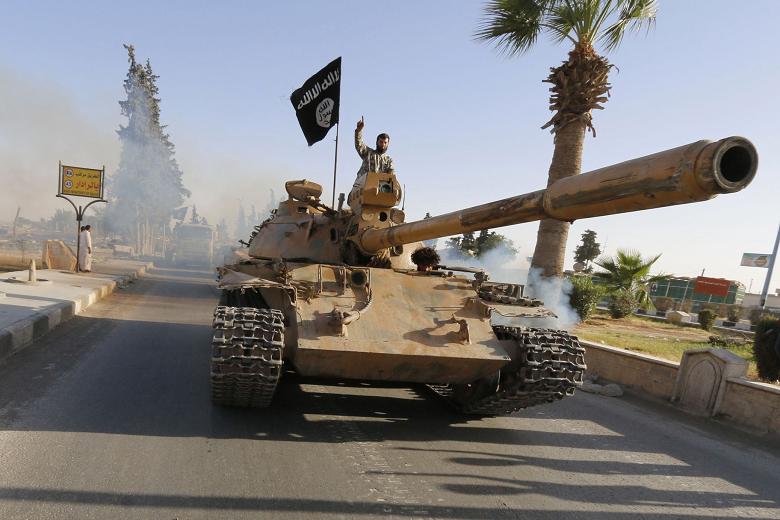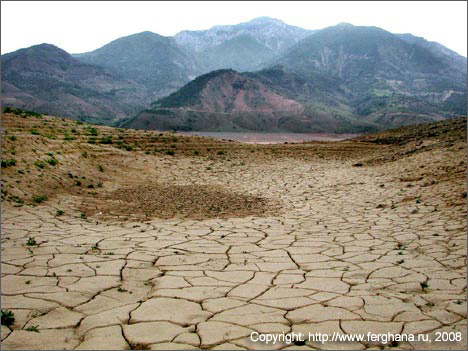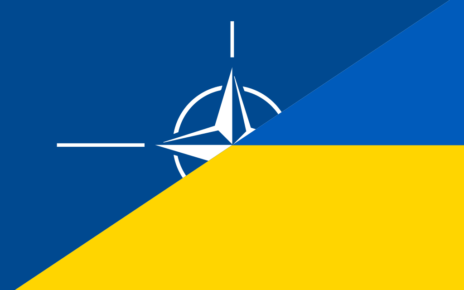On Sept 5th, 2014, Prime Minister Harper gave his speech on the closing day of the Wales Summit. He affirmed his commitment to two key issues: the Russian invasion of Ukraine and the advance of ISIL in Iraq and Syria. With respect to Ukraine, Harper asserted that “Canada supports tougher sanctions and the further economic and political isolation of the Putin regime” and expressed his support for NATO’s reassurance efforts in Eastern Europe.
Regarding the expansion of ISIL, Harper reassured the public that he has “expressed Canada’s full support for the actions taken thus far to contain ISIL’s advancement.” He confirms that Cabinet has authorized the 30-day deployment of Canadian military advisors, who will work with their American counterparts to assist and advise Kurdish forces in Northern Iraq in their struggle against the advance of ISIL.
Addressing Canada’s participation in NATO’s Rapid Reaction Force, Harper said that Canada has “certainly indicated that we’re fully supportive of that concept, [we] recognize the need, and we will be working with our Allies in the months to come, and with the NATO leadership, to define what this response force will look like and what its capacities will actually be.” However, he admits that at the moment, details are sparse and still in the process of being worked out.
In a response to a question by CTV on Brian Mulroney’s recent critiques of the Harper government’s foreign policy, Harper responded that: “I think the record is clear. That Canada’s ability to contribute concretely to international affairs has never been higher: whether it’s on hard powers like the military or things we’re doing on development, particularly, our leadership on jobs and health.”
Harper ended the press conference on cautiously optimistic note. Addressing the situation in Iraq and Syria, he believes that there has been progress especially in the North of Iraq in halting the advance of ISIL. However, Harper admits that the “situation in the South remains a bit more challenging partly because of the political difficulties of the government of Iraq.” The Prime Minister said that he expects, in the period to come, “that our Allies are going to look at further steps to respond to this threat. And obviously we will evaluate those as we’re made aware of the plans, but I think that those plans are still in the process of developing.”
The full transcript of Harper’s speech can be found below:
“Once again, I’d like to give my thanks to PM Cameron and the people of Wales for their warm hospitality. Also, as Sec-Gen Rasmussen ends his 5 years of NATO service, I thank and congratulate him for his leadership and also welcome his successor, Jens Stoltenberg.
The focus of this NATO meeting has really been on two issues: the Russian invasion of Ukraine and the advance of the terrorist group ISIL in Iraq and Syria. On Ukraine, Canada supports tougher sanctions and the further economic and political isolation of the Putin regime. We have been a leading contributor to NATO’s reassurance efforts in Eastern Europe. And at this Summit, Canada supported additional measures to increase NATO’s capabilities and responses.
Now let me comment on the situation in Iraq. We, like our Allies, have grown increasingly alarmed in recent months by the growing power of ISIL (The Islamic State of Iraq and Levant) and the carnage that ISIL is wrecking in its expansion. It has carried out barbaric acts of terror against Iraqi men, women, children, and minorities. Canada and its Allies have responded. Our government has already contributed to humanitarian efforts underway in the region. And along with our American, British, French, and Australian friends, RCAF transport aircraft have also delivered critical military supplies to the government of Iraq and Kurdish forces fighting ISIL. But ISIL’s horrific rampage continues symbolized by the savage murders of James Foley and Steven Sotloff. There can be no doubt that the establishment and expansion of ISIL’s terrorist caliphate is not only a threat to millions of innocent people, it has become a grave danger to the security of the region. And if left unchecked, this lawless area will become the training ground of International terrorists and even a greater threat to the security of Canada and its Allies.
In recent weeks, I’ve spoken to our Allies about this crisis. I’ve expressed Canada’s full support for the actions taken thus far to contain ISIL’s advancement. Based on the assessment of needs on the ground, President Obama has requested a commitment of Canadian military support. In response to this request, Cabinet has authorized the deployment of several dozen members of the Canadian Armed Forces. These personnel will work with their US counterparts who are assisting and advising Kurdish forces in Northern Iraq. Following the final sign-off of the government, Canadian personnel will be positioned for an initial period of about 30 days. This period will be re-assessed at a later time. This is not a combat mission and a role is clearly defined: Canada is joining our Allies in providing critical advice to forces in Northern Iraq as they continue to hold back the terrorist advance. While this mission is low-risk, it is not without risk. Our men and women in uniform are ready to answer this call and I thank them for always being prepared to defend Canadian values and interets in a dangerous world.
Questions & Answers:
CBC: On the question of military advisors, Canadians are naturally concerned about the risk of mission creep, unintended consequences, kidnapping and the like. ISIS or ISIL has the proven ability to spring tactical surprises, to move fast, to get behind you when you think they’re over there. Would you agree that there will soon be no guarantee that our advisors will not be in harm’s way, that they’ll end up with more than they bargained for.
PM: As I’ve said very clearly in my statement, we’ve evaluated the risk and the forces have evaluated the risk and think the risks are acceptable and manageable and the military and personnel who join it exist to take on reasonable risks in defensive and in Canada’s interests and that’s what we’re doing in this situation. We don’t think the risks are enormous but the risks are there.
Canadian Press: You were talking about the possibility and likelihood of increasing defensive spending. Your officials have been reasonably clear that Canada is prepared to increase defence spending. Can you bring some clarity to that? Can you say by how much? And when? And also, can you tell us how you convinced your Allies of your sincerity to increase defence spending in the long-term?
PM: Well, first of all, Canada has been increasing its defence spending. I think it’s up some-27 percent since I took office. More importantly, a significant percentage of that is expansion of expenditure is investment in equipment and capacities in the Canadian Armed Forces for the future. I think, in all fairness in fact, this is exactly what President Obama, PM Cameron and others have said to us that the real concern here is that there have been many countries in which defence spending has fallen rapidly. And even more concerning is that investments in equipment and capacities is ceasing. And so, there is the real possibility that in many countries we will see significantly decreased capacities in years to come. I’ve been very clear, we will be increasing our defence expenditure. We recognize the likelihood, not based just on this conference, but on events in the world, that capacities will have to be increased, the tempo of the Canada forces involved in the world will likely have to increase. And Canada will do whichver of those things as we always do. But that will be what determines our increased spending: the need to do the spending. I don’t in any area of government, set a budget, or just say we’ll spend a certain amount, and then go out and try to spend it no matter how we can spend it: that’s not how we do business. And I’m certainly not going to spend on a massive military expansion just for the sake of doing so. But as I say, Canada will spend what is necessary, obviously to protect ourselves, but also to be part of our joint Alliance and global security obligations.
The Star: Today, NATO approved a new Readiness Action Plan to make it more nimble, better able to deal with the threats of the future. And is part of that cornerstone the Rapid Reaction Force?
PM: The short answer is no. The easy reply to that is that the nature of the capacities of the response force are not yet defined in any substantive way. We’ve certianly indicated that we’re fully supportive of that concept, recognize the need, and we will be working with our Allies in the months to come, and with the NATO leadership, to define what this response force will look like and what its capacities will actually be. But at the moment, frankly, we have very little in the way of detail, but as I say, that’s going to be part of what’s worked out and we look forward to it.
CTV: Yesterday, former PM Brian Mulroney, a man that your own party touted as a true conservative just in the last few days or so, came out against your foreign policy that it wasn’t strong enough, that it didn’t have enough teeth. What do you say?
PM: I say that, I think the record is clear. That Canada’s ability to contribute concretely to international affairs has never been higher: whether it’s on hard powers like the military or things we’re doing on development, particularly, our leadership on jobs and health. And I think those are the facts and I think they’re widely recognized in the world and by Canadians as well.
Radio-Canada: Donc, je voudrais écouter vos propos sur les augmentations de dépense militaire: où vous allez les faire et de quelle façon vous avez décidé de faire ça. Je voudrais vous entendre sur la question de la force de réaction des pays de l’OTAN : pour vous, est-ce que c’est une question que c’est pas assez claire ce qu’on peut, qu’ils peuvent contribuer donc vous attendez. Ou bien est-ce que vous avez préféré, pour l’instant, mettre les efforts du Canada du côté de l’Iraq. Donc je voudrais que vous clarifiez vos pensés autour de cela.
PM: Pour notre priorité ce n’est pas un choix entre une force rapide réaction de l’OTAN et Iraq. Le Canada est prêt à contribuer aux deux efforts. Évidemment pour l’Iraq, je suis bien claire aujourd’hui sur nos contributions, sur nos contributions additionnelles.
Et franchement, c’est une situation très fluide. Je m’attends de plus de demandes à part de nos Alliés quand ils développent une autre stratégie. Et nous serons prêts à contribuer, augmenter nos contributions. Pour la situation de la force rapide, c’est un concept jusqu’à maintenant. C’est un concept avec lequel Canada est tout à fait d’accord. Mails il y a du travail à faire, par le leadership de l’OTAN et par nos Alliés pour définir la nature des capacités de cette force. Et nous aurons, pendant les mois à venir pour définir cette force et évidemment pour déterminer notre participation.
Pour la question de la dépense, notre perspective, je pense, j’ai parlé avec le président de l’OTAN et premier ministre Cameron et d’autres. Et leurs inquiétudes, ils sont vraiment inquiets que les pays où des dépenses diminuent d’une façon rapide. C’est pas le cas du Canada, au contraire, nous avons augmenté nos dépenses vingt cinq pour-cent depuis notre arrivée en fonction. Mais aussi, ils s’occupent de la réalité que plusieurs cessent d’investir dans leurs équipements et leurs capacités.
Pour le Canada, nos dépenses augmentent comme je viens de mentionner. Aussi, une grande partie de nos dépenses sont dans les équipements et des capacités. Vous êtes très conscients des mesures additionnels que le Canada est déjà prêt à faire dans ce programme. Pour la façon, comme j’ai dit à Londres,je n’ai jamais l’intention, dans n’importe quel domaine du gouvernent de juste déterminer un montant et de dépenser ce montant juste pour le dépenser. Je n’ai pas l’intention malgré ma réputation comme un grand défenseur des forces militaires. Je n’ai pas l’intention de faire une expansion militaire juste pour la faire. Nous déterminerons nos dépenses selon le déploiement et les accords avec nos alliés et ça va déterminer les efforts pendant les années à venir. Je suis claire, j’attends une augmentation de dépense mais pas au niveau de 2 pour-cent de PIB, je pense que c’est pas réaliste.
So if I could just maybe return to something I just said in French in English. I just want to make this clear as well. On the situation in Iraq and Syria, the measures taken today, particularly in the North of Iraq, have certainly been successful in halting the advance of ISIL and to some degree, actually pushing back on it. The situation in the South remains a bit more challenging partly because of the political difficulties of the government of Iraq. But we fully expect, this is far from truly turning back the advance of ISIL or diminishing the nature of the threat. I do expect that in the period to come, based on the conversations held here at NATO, that our Allies are going to look at further steps to respond to this threat. And obviously we will evaluate those as we’re made aware of the plans, but I think that those plans are still in the process of developing. Thanks for your questions.




